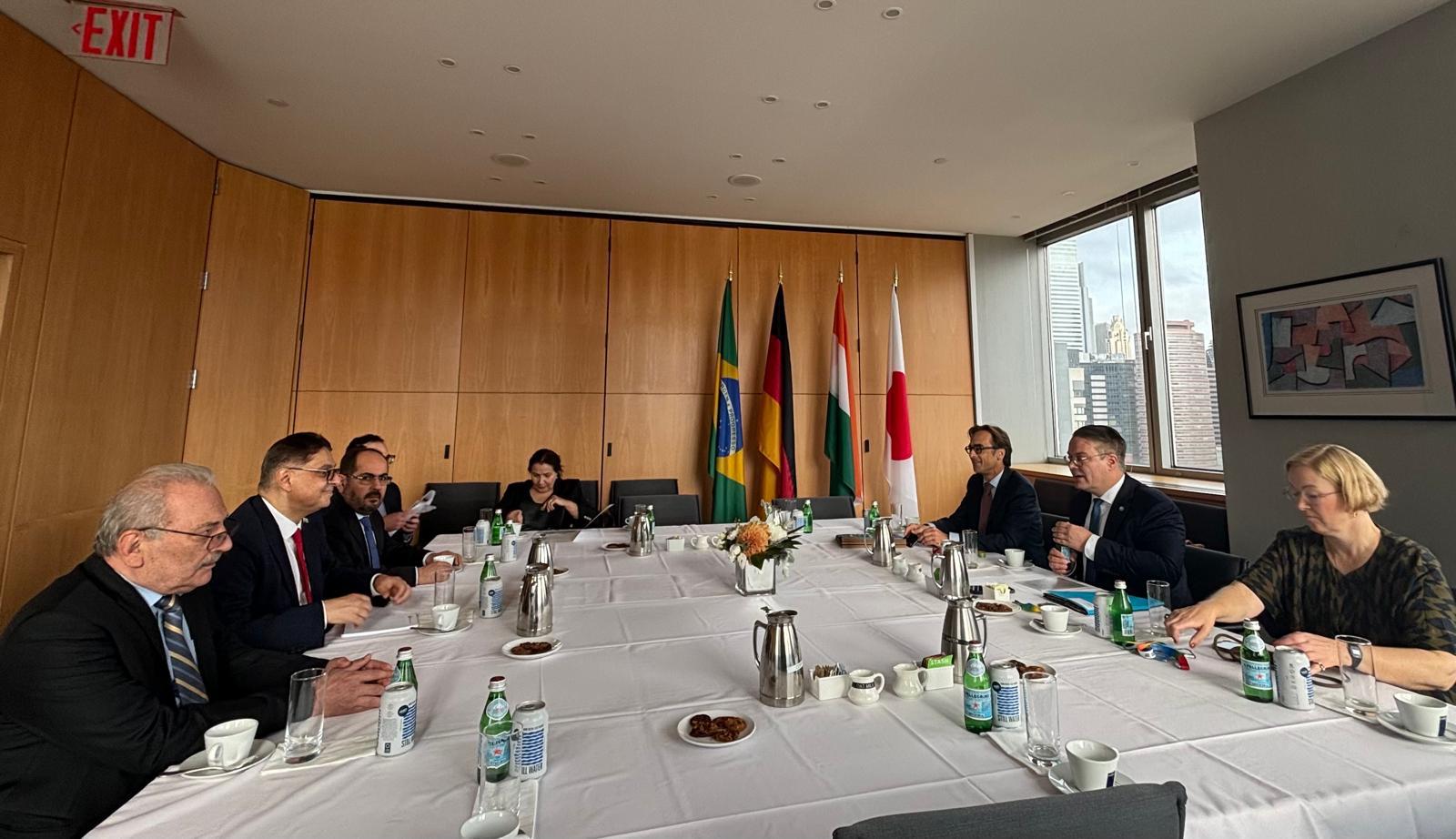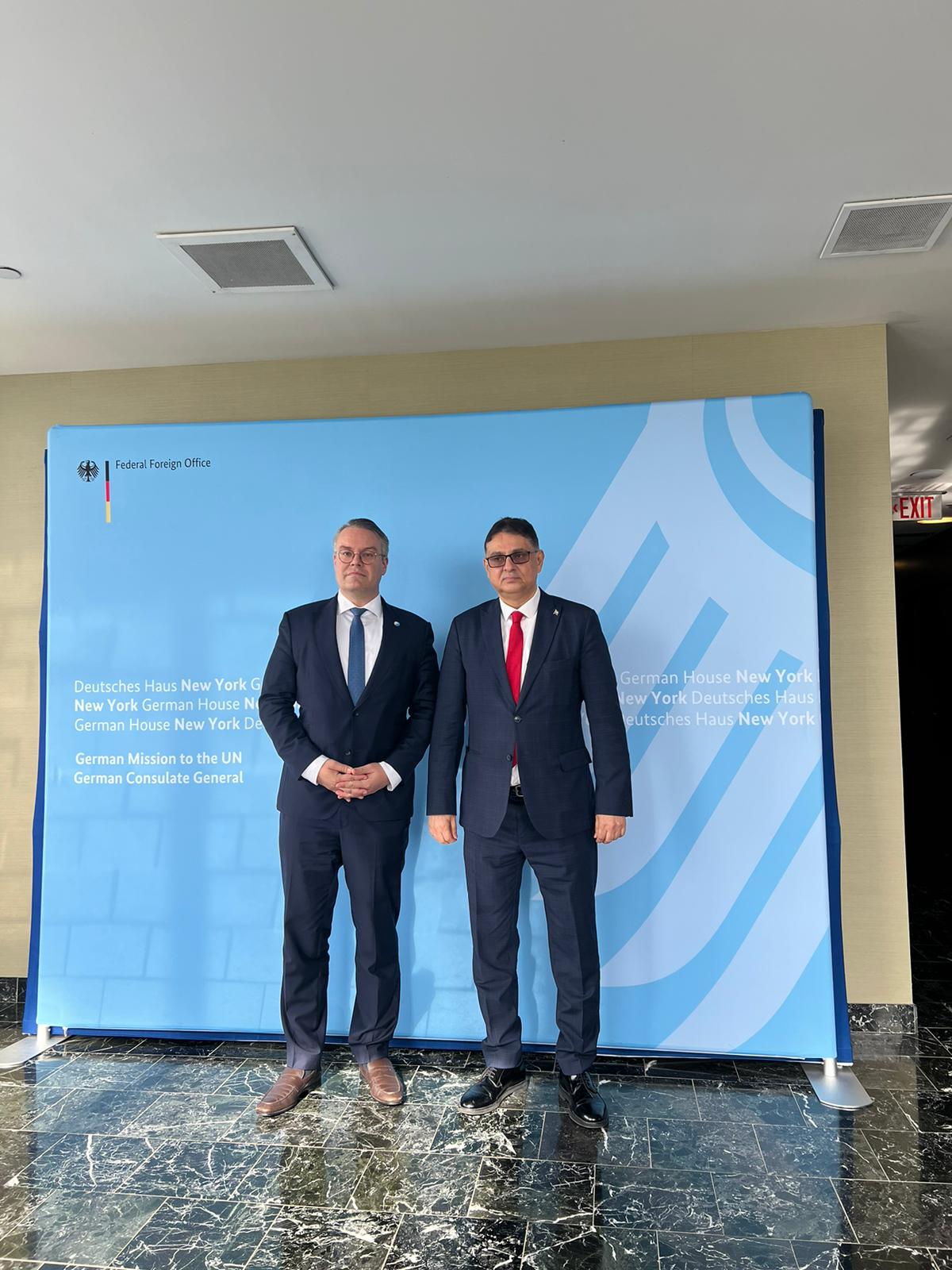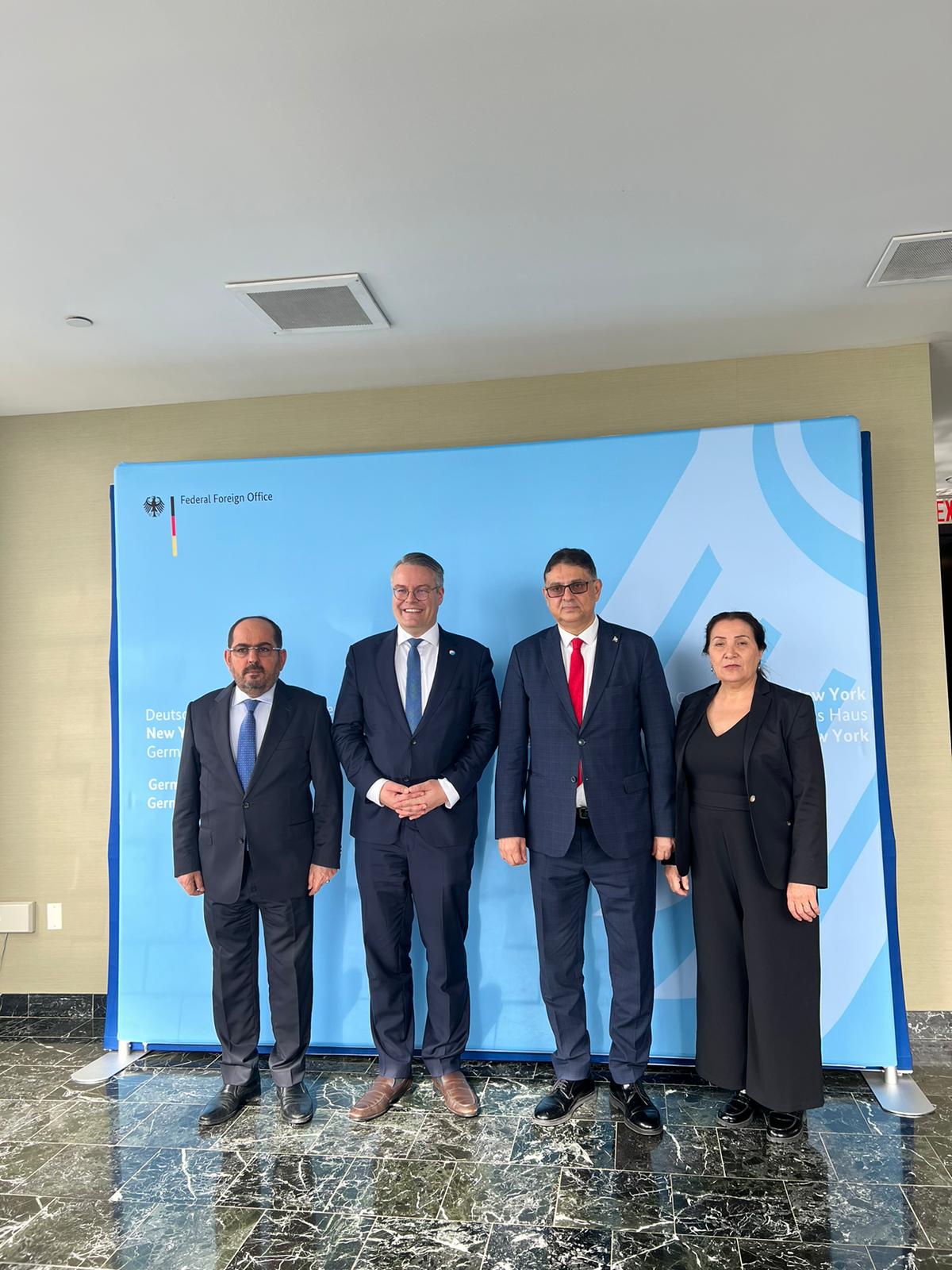The Negotiation Commission Holds a Meeting with a German Foreign Ministry Delegation
The Necessity of Establishing Mandatory Standards for Implementing International Resolutions

September 24, 2024
In New York today, the Syrian Negotiation Commission, led by its President, Dr. Badr Jamous, engaged in discussions with Mr. Tobias Lindner, the Minister of State at the German Foreign Ministry, and his accompanying delegation. The talks centered on the latest developments in the Syrian political process, prospects for advancing a political solution within the United Nations framework, and Germany’s supportive stance on a political resolution in line with international mandates.
The meeting, which took place on the sidelines of the United Nations General Assembly sessions, was attended by Abdul Rahman Mustafa, the Prime Minister of the Syrian Interim Government, and Commission member Fadwa Al-Ajeeli. Representing the German side were Mr. Tobias Tunkel, Director of the Middle East Department at the German Foreign Ministry, Ms. Wenke Dagehab, the Minister’s Office Director, and Ms. Anna Fory, an expert at the German Permanent Mission. Several members of the Negotiation Commission were also present.
Dr. Jamous outlined the Commission’s international efforts to galvanize support within the United Nations General Assembly to advance the political process, which has been stalled by the Syrian regime. He emphasized the need for practical measures to enforce international resolutions, particularly the Geneva Communiqué and UN Security Council Resolution 2254.
He highlighted the Commission’s endeavors to rally support at both the European level and within the Security Council to push the Syrian political process forward. Dr. Jamous stressed the importance of establishing mandatory standards for the implementation of these resolutions to curb the regime’s evasion and non-compliance.
Dr. Jamous also expressed gratitude for Germany’s steadfast political and humanitarian support for Syrians. He acknowledged the significant humanitarian, relief, and educational aid that has reached Syrians due to German efforts. He conveyed his appreciation for Germany and the European Union’s unwavering commitment to the political process as the sole solution to the Syrian crisis.
Mr. Lindner reaffirmed Germany’s full support for a political solution as outlined in UN Security Council Resolution 2254, asserting that it is the only path to achieving sustainable peace in Syria. He reiterated that Germany’s position against normalization, easing sanctions, or reconstruction will remain unchanged as long as the Syrian regime fails to take concrete steps toward a political resolution.
Media Office


